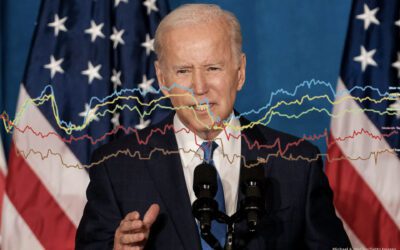Voters are angry. They are angry at an economy that does not work for average people and a pay-to-play culture in Washington that ignores the voices of working families to lard more favors and breaks to wealthy campaign donors. And they demand systematic change.
In a nationally representative survey of 900 likely 2016 voters conducted by Democracy Corps, an impressive 72 percent support a new law that would provide qualified candidate with limited public matching funds for small contributions they raise from constituents. Nearly four in ten (39 percent) strongly support this proposal. When this and other reform measures to reduce the influence of money in politics are played out in real campaign simulations, Democrats who embrace this reform, including Hillary Clinton and down-ballot congressional candidates, find a significant electoral advantage even in the face of attack.[1]
Voters Upset about Current Campaign System
Voters are frustrated with the way election campaigns are funded today. They are most disturbed by the fact that the big campaign donors today do not represent the electorate – they are mostly rich, white, older and male in a country that is increasingly younger, more diverse and where women are a majority – and have made their fortunes in finance and oil and coal (39 percent find this most upsetting).
They are also concerned that super PACs for many presidential candidates have raised more money than candidates have raised for their own campaigns (33 percent most upsetting), and that just 158 families have contributed nearly half of all of the money given to campaign thus far (33 percent most upsetting).[2] The cluster of concerns about the role money is playing in the presidential election all score above 30 percent, underscoring an “all-of-the-above” viewpoint. In short, voters are concerned about all aspects of the problem of money in politics.[3]

Broad Support for Change
An impressive 72 percent of voters support big changes in our campaign finance system to include public financing of campaigns and a system of matching funds for small donations. Critically, this is not simply a reflection of progressive support, but reveals the will of a broad coalition of voters including Independents, Trump voters and Tea party supporters.
Support reaches 74 percent among Democrats (42 percent strongly favor), but some of the highest and most intense support is among Independent voters (76 percent favor, 47 percent strongly favor). Support also remains high among insurgent groups on the political Right including Trump voters (69 percent favor) and Tea Party supporters (66 percent favor).

Serious Electoral Impact
Money-in-politics reform carries significant electoral bite as well. In the face of a serious and largely unanswered attack, Democratic candidates who embrace this change improve their electoral position.
Nearly two-thirds of voters (63 percent) react positively to a message from a Democratic candidate embracing these reforms, including 61 percent of Independent voters and 81 percent of voters under age 30. While history complicates the issue to some extent for Secretary Clinton, half of voters also react favorably to her full-throated support for change.[4]

Voters also heard a series of attacks launched against both Secretary Clinton and Democratic candidates regarding the both candidate’s own fundraising, and the campaign reforms proposed.
One impressive finding is the resilience of down-ballot Democratic candidates when attacked as not credible in light of their own fundraising. Just 17 percent say they have very serious doubts about the Democratic candidate who “accept[ed] millions of dollars in campaign contributions from Wall Street and corporations,” the least concerning of the doubts raised against them. Incumbent Democrats should not be wary of running on reform because of their own fundraising.
Perhaps most important is how a strong Clinton offense on this issue mitigates against the inevitable Republican attacks on her campaign. Voters who hear Clinton’s embrace of reform first are far less likely to find credible attacks on her past fundraising. It is imperative that Secretary Clinton pre-empt these attacks by elevating her plans to reform elections and reduce the influence of money in politics.

Conclusion
Voters want change this cycle. They reasonably believe the system is rigged against them and that representative government of, by, and for all Americans no longer defines our democracy. As a result, they embrace systematic reforms to restore our system of government, including small donor-driven reforms, and support candidates who feel likewise.
[1] The survey among 900 likely 2016 voters was conducted from December 5-9, 2015, using a list of 2012 voters, 2014 voters, and new registrants. Unless otherwise noted, the margin of error for the full sample is +/-3.26 percent at 95 percent confidence.
[2] “Here are 120 million Monopoly pieces, roughly one for every household in the United States,” New York Times, October 10, 2015; “Which Presidential Candidates Are Winning the Money Race,” New York Times, October 16, 2015.
[3] Respondents were asked to choose their top two concerns for this question.
[4] It should be noted that we tested Clinton and not her major primary opponent Senator Bernie Sanders because Sanders has more aggressively embraced money-in-politics messaging.




